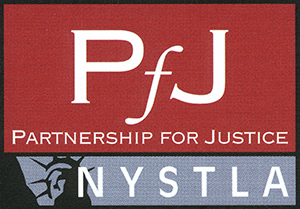Type 2 Diabetes Risk: Antipsychotic Drugs and Children
Posted on October 23rd, 2013 by Oddo & Babat, P.C.
The use of second generation antipsychotic drugs (SGAs) appears to increase the risk of Type 2 diabetes in children, according to a 2001-2008 study by the Agency for Healthcare Research and Quality. While it was previously known that SGAs could double adult users’ chances of developing diabetes, the study suggests that children who are prescribed them are three times as likely to be diagnosed with the condition.
Published in JAMA Psychiatry earlier this year, the study examined the state-provided, anonymous medical records of approximately 43,000 youth under 24 years of age in Tennessee. About 29,000 were recent initiators of SGAs while 14,000 matched controls were receiving other treatments. Researchers found an estimated 16 additional cases of Type 2 diabetes per 10,000 children taking antipsychotic drugs for one year, with increased risk from cumulative dose.
SGAs, also referred to as atypical antipsychotics, are used in the treatment of severe mental health conditions including schizophrenia, schizoaffective disorder and mania. By altering the effects of natural chemicals in the brain including serotonin and dopamine, they regulate mood, emotions, sleep, appetite and other aspects of behavior. While side effects vary by individual drug, SGAs generally cause weight gain, changes in blood sugar level and increase in insulin resistance which all heighten the risk of diabetes.
The use of antipsychotic drugs in children is becoming more and more common. Since 2002, prescriptions for patients under 17 years of age have increased 65% — from 2.9 million to 4.8 million—according to the US Food & Drug Administration. While the FDA has approved SGAs such as Abilify and Seroquel for treatment of schizophrenia, many young people are now prescribed them for bipolar disorder, ADHD, depression and other mood disorders when other psychiatric medications including antidepressants, lithium and psychostimulants are available.
The researchers in the AHRQ study excluded any children who suffered from conditions that could only be treated by SGAs, noting that all those involved were taking antipsychotics for non-psychosis related mood, attention or behavioral disorders. Dr. Wayne Ray, professor of Preventive Medicine and a senior author of the study, said the findings should make doctors more cautious about prescribing antipsychotics to children. “If it turns out that the child does ultimately need an antipsychotic, they should be carefully monitored for metabolic effects and the dose should be as low as possible for the shortest amount of time,” he said. Given the additional risk, why would a doctor choose to prescribe SGAs when alternative treatments are available? One Rutgers University study in 2010 found that children from low income families receiving Medicaid are four times as likely as the privately insured to be prescribed anti-psychotic medication because they do not have access to the best known alternatives: cognitive-behavioral therapy and counseling.
In July,16 State Medicaid directors released a study recommending states require second opinions, outside consultations and other methods to ensure SGAs are not improperly prescribed. Some states including Florida and California have already put laws in place restricting doctors from dispensing SGAs to children. Without authorization from the state, children younger than 3 in Texas cannot receive antipsychotics and Arkansas now requires parents to give informed consent before a child is prescribed an anti-psychotic drug.


 I consulted with David the first time a couple of years ago on a serious matter that affected a very close member of my family. Not expecting a good experience from this serious situation coupled with an attorney consultation, the entire thing surprised me as it was pleasant, professional, and completely successful. We found him clear, direct, generous and extremely knowledgeable throughout the process. I give my very strongest recommendation
I consulted with David the first time a couple of years ago on a serious matter that affected a very close member of my family. Not expecting a good experience from this serious situation coupled with an attorney consultation, the entire thing surprised me as it was pleasant, professional, and completely successful. We found him clear, direct, generous and extremely knowledgeable throughout the process. I give my very strongest recommendation








